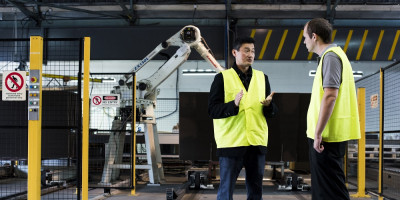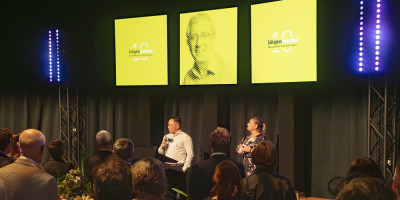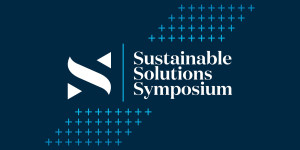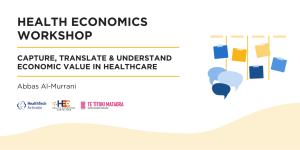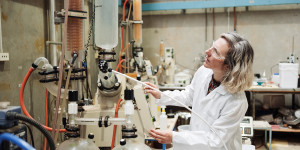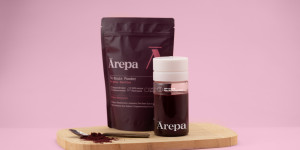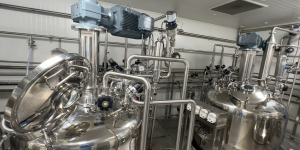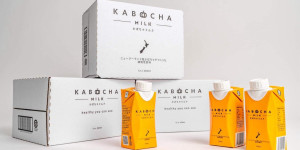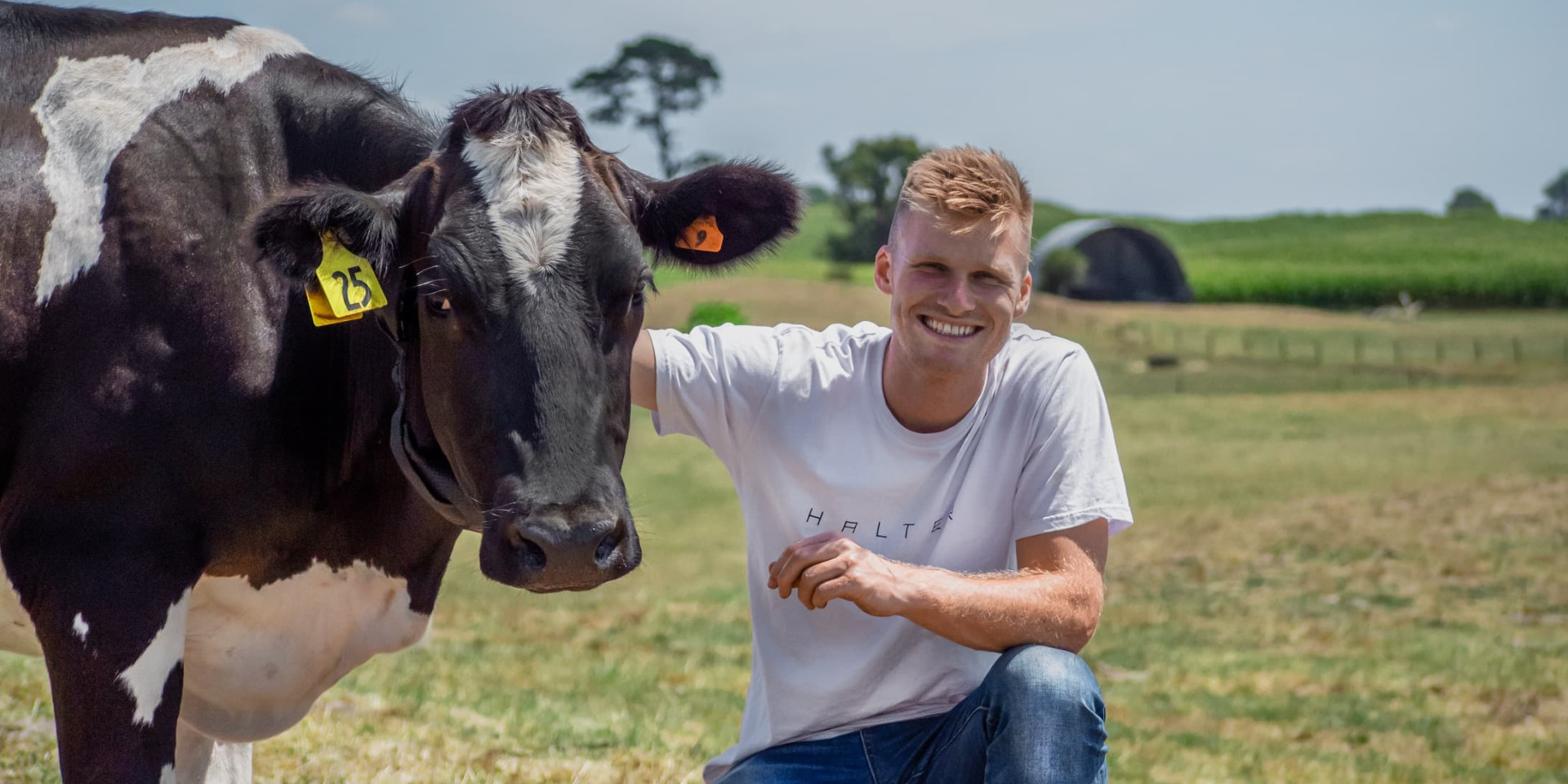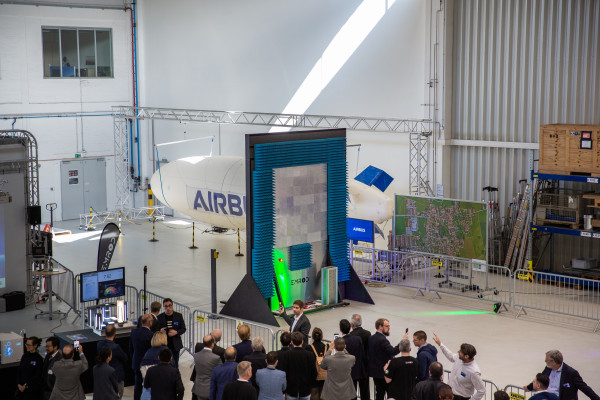Agritech innovator Halter has revolutionised dairy farming with its ‘smart collars’ and ‘cowgorithms’, using support from Callaghan Innovation to grow the business and its R&D talent pipeline.
At a glance
- Agritech innovator Halter develops ‘smart collars’ for cows to make dairy farming simpler and more sustainable.
- Halter has accessed Callaghan Innovation support from its earliest days, including R&D Experience Grants as a way to grow the business’ skilled workforce.
- Halter is adding new farms each week, looking to deploy across New Zealand and into other key dairy markets.
The whole way through our journey we’ve been supported by either Callaghan Innovation Project or Growth Grants [now replaced by the R&D Tax Incentive], which have been absolutely critical to our operation.
- Craig Piggott, Founder & CEO, Halter
Driving dairy farming forward
As a dairy farmer lies in bed, rain steadily belting down outside, they reach for their cellphone. Quickly accessing an app, they remotely move their herd to higher ground – no raincoat and gumboots required.
Between their ‘smart collars’ for dairy cows and mission-critical software developed to allow farmers to drive the system, agritech startup Halter is revolutionising dairy farming.
Their rugged collars help to measure and understand everything about the cows, indicating when they’re sick before they show outward symptoms, to when they’re in heat, or calving. It also allows the animals to be trained, and respond to cues from the collars, enabling them to be remotely moved, and stay within the bounds of ‘virtual fences’.
The software harnesses what the business company calls its ‘cowgorithm’ – a set of patented algorithms Halter has developed that both translate human intentions into signals that an animal can understand, and animal behaviour into insights a human can understand.
“If you’re a farmer it reduces the amount of time it takes to manage your herd so you can be more productive,” explains Halter founder and CEO Craig Piggott, “and you’re able to have happier, healthier cows because you’re proactively managing their health. There are a whole heap of benefits across the board.”
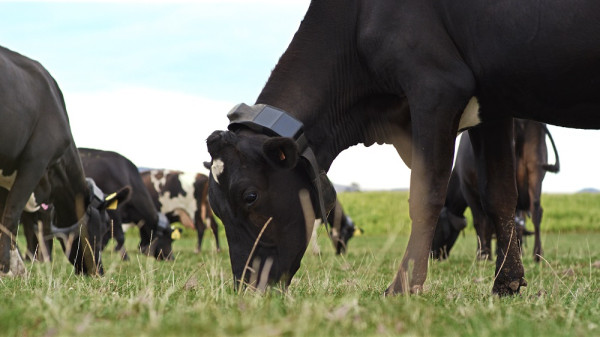
cows with collars grazing in a field
Critical Callaghan Innovation grants
Piggot’s background on a dairy farm coupled with his experience working in one of New Zealand’s most innovative firms, Rocket Lab - also a Callaghan Innovation beneficiary - propelled him to start Halter. Working on Halter part time to start with, he gained an initial grant from Callaghan Innovation in addition to raising some seed funding that allowed him to go full time, as well as set up an office and start hiring in early 2017.
Since then, Callaghan Innovation has helped support the development of Halter’s world-class R&D team through the R&D Tax Incentive, as well as R&D Experience and Career Grants, which supported Halter in hiring 10 interns a summer, around a third of which have gone on to work full-time in the business after they graduated.
“The whole way through our journey we’ve been supported by either Callaghan Innovation Project or Growth Grants [now replaced by the R&D Tax Incentive], which have been absolutely critical to our operation,” says Piggott. “As a startup, cash is very important and any grants we can attain go straight into our investment in R&D and headcount.”
Reaping the rewards
Halter isn’t showing any signs of slowing down. As well as some of their best people coming from the internships according to Piggot, Halter was also recognised at the 2021 NZ Hi-Tech Awards, winning Most Innovative Hi-Tech Hardware Product and Most Innovative Agritech Solution.
In 2021 also, Halter began deploying the technology on farms in the Waikato and new farms have been coming on board each week since. The business simply hasn’t been able to keep up with demand.
This was all before a further $32 million in investment was raised in 2022 that will be primarily used to hire more than 100 additional staff, as the company looks to deploy in other regions of New Zealand, and ultimately globally, in major dairy markets such as South America and Europe.
“New Zealand is the best place for us to be right now,” says Piggott. “There are six million dairy cows here, so it’s a pretty epic place to start, but we have very, very large ambitions so going global is a matter of when, not if.”
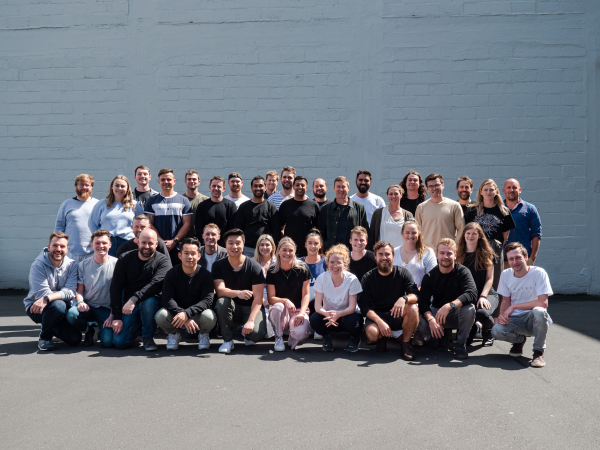
The Halter team




